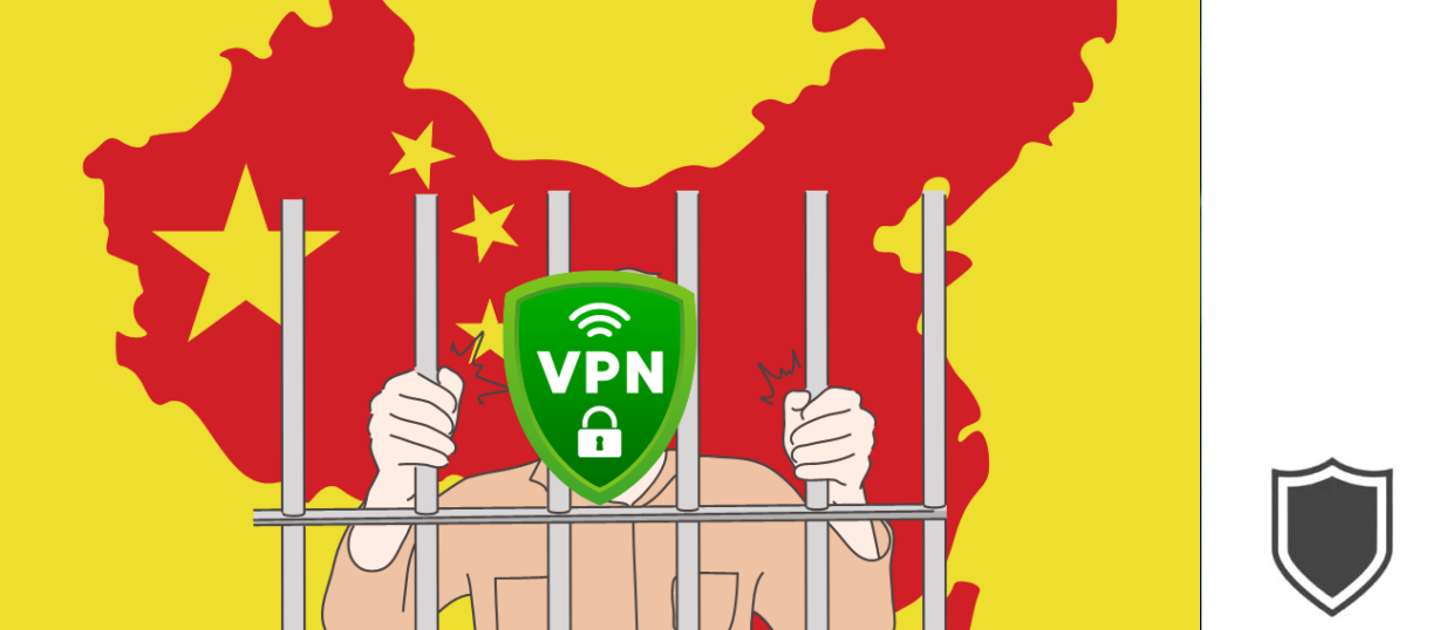Is using a VPN in China legal? Navigating the complexities of the legality of VPN use in China is challenging, as the response is not straightforward. To comprehend the current restrictions and regulations surrounding the use of VPNs in China, it’s essential to consider the latest changes and actions noted.
While the Chinese government has not outright declared VPN technology illegal, their stance on its usage remains murky. VPNs are commonly utilized by businesses and the government themselves for international communication, but various instances of bans or threats to ban VPNs have raised concerns among internet users.
In this article, you will gain a better understanding of VPN legality in China, and what precautions you should take when using these services as well.
Table of Contents
Legality of VPNs in China | Are VPNs Illegal in China?
Government Stance on VPNs
In China, the use of VPNs is a controversial topic. The Chinese government recognizes the importance of VPNs for international business operations and secure communications. However, they have imposed regulations on VPN usage in order to maintain strict control over internet access within the country. It’s vital to note that while VPN technology itself is not completely illegal, using a VPN without proper authorization is indeed unlawful.
Despite the ambiguity, many businesses and individuals in China continue to employ VPN services to bypass strict censorships and maintain privacy. As of this writing, the government’s stance on VPNs leans more toward restricting unauthorized usage rather than categorically banning the technology.
Fines and Penalties for VPN Use
If you use a VPN without proper authorization in China, you may potentially face fines and penalties. To date, no foreign visitors have been charged for VPN usage, but Chinese authorities have been known to target local VPN providers who operate without a proper license. The fines imposed for unauthorized usage are generally not significant, but it’s crucial to exercise caution and comply with the evolving regulations.
To ensure smooth internet access while in China, it’s essential to familiarize yourself with the legal standing of VPNs and the potential consequences you may face. As a user, it’s your responsibility to understand the risks and remain up-to-date on the latest developments regarding VPN legality in the country.

The Great Firewall of China and VPNs
Censorship and Internet Restrictions
In China, overall internet censorship is a significant concern, as the Chinese government has enforced The Great Firewall to regulate the internet domestically. Various popular websites and online services are blocked, including Google Suite, Slack, Dropbox, and many others. Internet access in China is, in many ways, a shadow of what you might experience elsewhere.
However, given the necessity of VPNs for businesses and government institutions, the technology itself is not outright illegal in China. This allows organizations to securely conduct their activities within and beyond the country’s borders.
Bypassing the Great Firewall
Many people in China rely on VPNs to bypass the Great Firewall and gain access to restricted websites and online services. While the Chinese Ministry of Industry and Information Technology has declared VPN usage as a technically illegal activity, their enforcement and crackdown are selective, targeting unauthorized VPN providers rather than individual users.
Over the years, the number of VPN services able to evade detection in China has decreased due to increasing government scrutiny. And, despite the fact that providing VPN services that bypass the Great Firewall is illegal, many individuals continue to use them to access content and services that are otherwise blocked.
When seeking ways to bypass the Great Firewall, it’s essential to choose a VPN provider that can remain undetected by Chinese authorities to ensure a stable and secure connection. However, tread cautiously, as using a VPN to bypass internet restrictions in China still carries potential risks.
Best VPNs for China
In this section, we will discuss some of the best VPNs for China that you can rely on. Keep in mind that using VPNs in China is a gray area, so use them at your own risk.
ExpressVPN
ExpressVPN is a popular choice for users in China due to its robust security features and fast speeds. With servers in 90+ countries, including nearby locations such as Hong Kong and Japan, you’ll be able to bypass restrictions and maintain your privacy. ExpressVPN uses strong encryption to protect your data and a strict no-logs policy to ensure your activities remain private.
NordVPN
NordVPN is another reputable VPN provider offering reliable service in China. With over 5,000 servers worldwide, you’ll have no problem finding a server close enough to provide good speed. NordVPN employs military-grade encryption and a no-logs policy to protect your privacy. The company also offers obfuscated servers, which can help avoid detection by the Great Firewall.
Surfshark
Surfshark_VPN is a relatively new player in the VPN market, but it has quickly gained a reputation for its reliability in China. With servers in 100 countries, including Hong Kong, you can count on Surfshark to bypass internet restrictions. The VPN employs strong encryption, a no-logs policy, and also offers a camouflage mode to help avoid detection.
VyprVPN
VyprVPN features its proprietary Chameleon protocol, which makes it an excellent choice for users in China. This technology helps bypass restrictive networks while maintaining a high level of privacy. VyprVPN has servers in over 70 locations and offers robust security features such as strong encryption and a no-logs policy.
Remember, while these VPN providers can work in China, the legality of their use is a gray area. Always exercise caution when using VPN services there.
Features to Consider for a VPN in China
Encryption and Security
When choosing a VPN for use in China, it’s essential to prioritize encryption and security features, first and foremost. Look for VPNs that offer strong encryption protocols like AES-256 to protect your online privacy and data.
Additionally, consider VPNs with advanced security features such as a kill switch and DNS leak protection, as these can enhance your online security by preventing your IP address and other information from being accidentally exposed.
Fast Speeds and Server Locations
Fast connection speeds are great to have as well, as they can help ensure smooth browsing and streaming experiences. You should look for VPNs that are known for their high-performance servers and excellent speed capabilities.
Moreover, having a large number of server locations worldwide is also important, as this allows you to bypass geo-restrictions and access content from different countries without any complications. Always opt for a VPN with a diverse range of server locations to ensure seamless connections and minimal latency while using the service.
Customer Support and Ease of Use
One of the most overlooked aspects of a VPN is its customer support and ease of use. As a user in China, you might face various challenges while using a VPN, such as connection issues or trouble with local restrictions. It’s essential to have a VPN service that offers prompt and efficient customer support to assist you whenever needed.
For this reason, make sure your chosen VPN provider has reliable customer support channels like 24/7 live chat and email assistance at a minimum. Additionally, opt for a VPN service with user-friendly applications and straightforward setup processes, so that you can configure and start using the VPN without any hassle.

Using VPNs to Access Blocked Websites and Services
When it comes to accessing blocked websites and services in China, a great VPN can be your best friend, allowing you to bypass censorship and restrictions imposed by the Chinese government. Let’s dive into some of the key uses of VPNs within China, such as unblocking popular websites and streaming services, and facilitating torrenting and P2P file sharing.
Unblocking Popular Sites and Streaming Services
By using a VPN, you can access popular sites like Google, Facebook, YouTube, and Twitter that are usually blocked within China. VPNs also help you unblock and access streaming services such as Netflix, Amazon Prime, Disney+, and BBC iPlayer by changing your IP address to one from a different country.
Keep in mind that not all VPNs are created equal, and some are more effective at bypassing geo-restrictions than others. Make sure to choose a reputable VPN with a robust server network and a proven track record of unblocking websites and streaming services in China.
Torrenting and P2P File Sharing
Another common reason for using a VPN in China is to safely and anonymously engage in torrenting and P2P file sharing. While torrenting is not explicitly illegal there, it’s still crucial to protect your privacy and remain anonymous while engaging in such activities.
Most reputable VPN providers offer P2P-friendly servers, strong encryption, and no-logs policies, ensuring your torrenting activities remain hidden from even the most vigilant ISPs and government agencies. By using a reliable and efficient VPN service, you can torrent and share files without putting your privacy at risk.
VPN Usage for Foreigners and Expats
Traveling to China
When you travel to China, it’s essential to be aware of the country’s internet restrictions and regulations. Although using a VPN is not explicitly illegal in China, the Chinese government has taken steps to control and regulate their use. As a foreigner, it is important to understand these regulations and choose a reliable VPN provider that can bypass the Great Firewall of China while maintaining your privacy and security.
Staying Connected
Staying connected with your friends, family, and work while in China can be challenging due to internet restrictions, with so many popular websites and apps, such as Google, Facebook, and WhatsApp being blocked.
VPN providers with a strong track record for bypassing internet restrictions in China are your best bet for seamless communication. Make sure to install and set up your VPN before arriving in China as it may be difficult to do so once in the country.
Internet Freedom
The ability to access uncensored information and communicate privately is crucial for many expats and travelers in China. VPNs offer a tool for maintaining your internet freedom by masking your IP address and encrypting your internet traffic.
It’s important to remember that although VPNs are legal to use in most countries, China’s regulations make it difficult for VPN providers to operate there. That said, choosing a reputable VPN service with a commitment to privacy and a proven ability to bypass China’s internet restrictions is essential for maintaining your online freedom.
Frequently Asked Questions
Is using a VPN punishable in China?
Although the technology itself is not illegal, the use of VPNs without government approval is considered a crime in China. However, many people still use VPNs without facing any consequences, as enforcement is not consistent. It’s vitally important to stay informed about VPN legality while in the country.
Can NordVPN be used legally?
Using NordVPN in China is not illegal by itself. However, you should consider using a VPN that is government-approved or designed to work in countries with strict internet censorship like China. You can review the terms and conditions on the NordVPN website to ensure compliance.
Which VPNs work best in China?
Many VPNs work well in China, despite internet restrictions. Some popular options include ExpressVPN, Astrill, and Surfshark. Keep in mind that no VPN is guaranteed to function at all times, and the effectiveness of a VPN in China may depend on various factors.
Does ExpressVPN function there?
Yes, ExpressVPN is known to work in China. The company has servers located nearby in Hong Kong and offers special features to bypass internet censorship. However, be aware that the performance of such VPN services can be subject to change. You can visit the ExpressVPN website for more information on their product.
Do authorities block NordVPN?
There have been cases where VPNs, including NordVPN, have been blocked by Chinese authorities. However, NordVPN has tools in place to work around these restrictions. It is essential to stay up-to-date on any changes and follow all local laws and regulations.
What are the consequences of getting caught?
The consequences of getting caught using a VPN in China can vary. If authorities find you using a VPN without proper approval, you could face fines or penalties. In some cases, people have had their internet access temporarily restricted. It is important to weigh the potential risks before deciding to use a VPN in China, as well as to understand the legal aspects of VPN usage in the country.
- VPN Chrome Extension: Enhance Your Online Security Today - February 27, 2026
- Are VPNs Illegal in China? The Full Answer - February 27, 2026
- How to Prevent a Sim Swap: Essential Tips and Strategies - February 27, 2026











1 thought on “Are VPNs Illegal in China? The Full Answer”
Comments are closed.